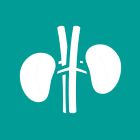MIOT Institute of Nephrology
Kidney Transplant
Overview
MIOT International ‘s Institute of Nephrology is one of the largest centres in India for all types of kidney transplants, including Kidney Transplants Across Blood Group. The Centre performs living donor kidney transplants as well as deceased donor kidney transplants for adults and children. Our specialists have performed over 651 successful kidney transplants since the inception of the kidney transplant unit.
A solution to end-stage renal disease
Your kidneys remove excess fluid and waste from your blood. When they are unable to perform their filtering function, dangerous levels of fluid and waste accumulate in your body, resulting in what is known as kidney failure for which a kidney transplant is often the best treatment. Common causes of kidney failure include diabetes; chronic, uncontrolled high blood pressure; and inflammation and scarring of the tiny filters within the kidneys (chronic glomerulonephritis). In a kidney transplant, the diseased kidney of a patient with end-stage renal disease is replaced with a functioning kidney from a donor. The types of transplant, classified according to the origin of the donor kidney, are deceased-donor transplantation and living-donor transplantation. Only one donated kidney is needed to replace two failed kidneys.
Online Kidney Transplant Enquiry
Kidney Transplant Across Blood Groups
To address today’s deficit of donor organs, the MIOT Institute of Nephrology has devised a programme for Kidney Transplant Across Blood Groups, where the transplant is performed with a donor-kidney from someone whose blood group is not the same as the patient’s. MIOT International has collaborated with the Tokyo Women’s University, the leaders in this cutting-edge, breakthrough Kidney Transplant Across Blood Groups procedure, and has performed several of these transplants on adults and children in the last few years. Till date MIOT Hospitals has performed several Kidney Transplants Across Blood Groups with international standards success rate.
In a Kidney Transplant Across Blood Groups , specialists determine the amount of antibodies in the patient’s bloodstream and work to reduce the blood group antibody through desensitisation and immune modulation. This may involve plasma exchange and medication. Once the number of antibodies in the patient’s bloodstream has been reduced, the transplant is performed. The patient’s antibody levels are monitored closely after the kidney transplant surgery for a few weeks. For patients, this eliminates waiting to find a compatible donor as anyone can donate to any potential kidney transplant recipient, regardless of their blood types.
Multi-departmental support
The MIOT institute of Nephrology’s transplant programme is supported by multiple departments: our state-of-art laboratory which provides specialised immunology services, advanced imaging and radiology facilities such as MRI (with and without contrast), CT Scan, PET scan, nuclear imaging facilities, drug estimating lab, and a full-fledged Haematology department. This multi-departmental approach to kidney transplants has enabled MIOT Hospitals to achieve results that are comparable to the best institutes in the world.
Treatments & Procedures
Procedures performed
Meet the Doctors
Dr. Rajan Ravichandran
MBBS, MD Internal Medicine, Diplomate in Nephrology, National BoardThe MIOT Institute of Nephrology is headed by Dr. Rajan Ravichandran, one of India’s most renowned nephrologists.
In the course of a career that has spanned over 30 years, Dr. Ravichandran has treated more than 20,000 national and international patients with various kidney ailments that involve general nephrology, dialysis, and kidney transplants. .
Dr. Ravichandran has won a number of awards during the course of his long career in medicine. He has chaired several hospital and university committees, and written and published extensively about kidney disease and its effects.





